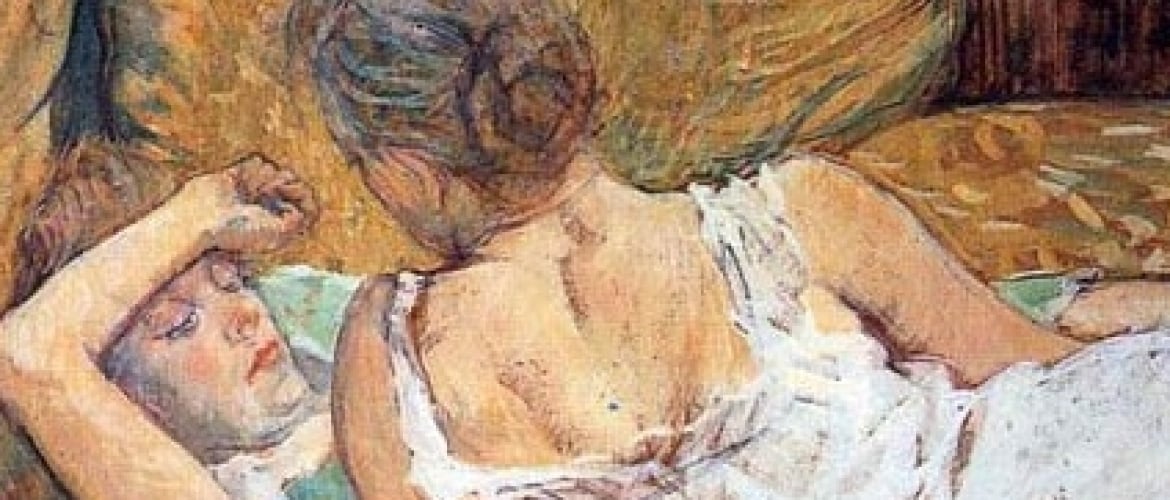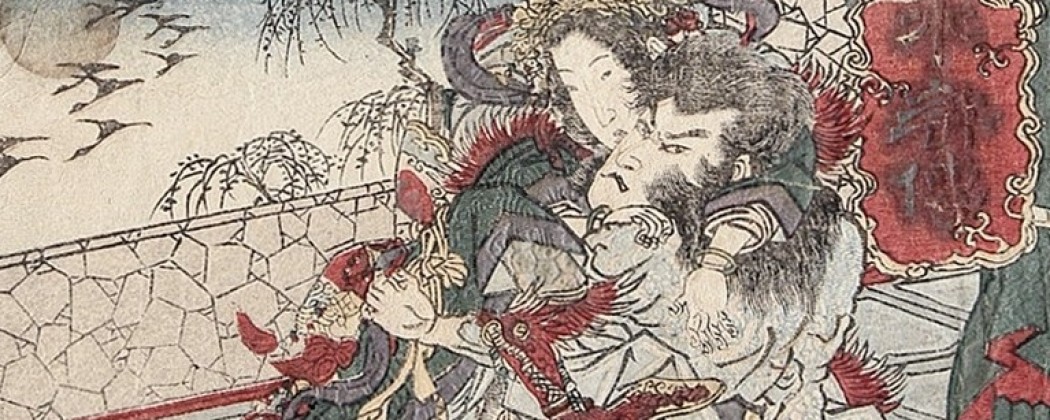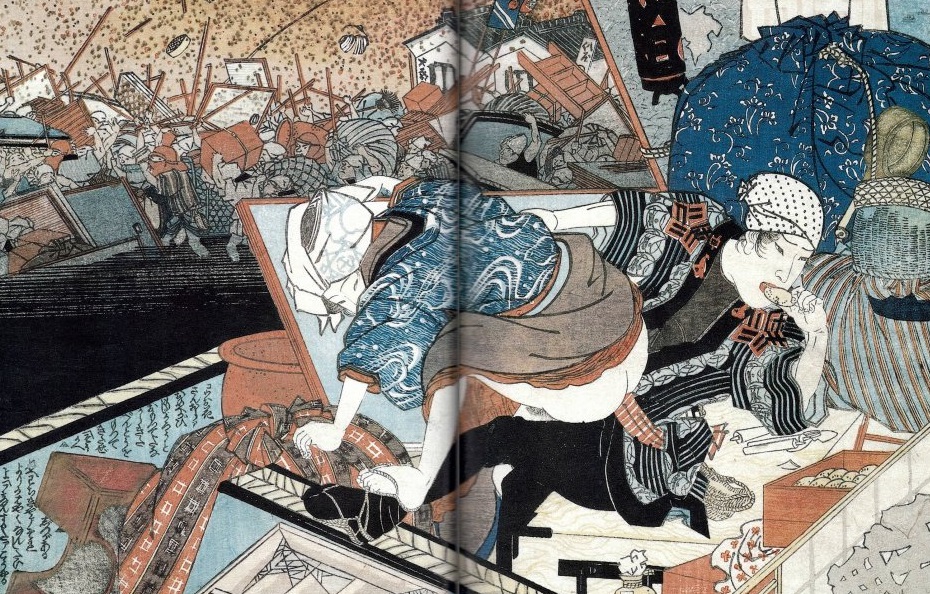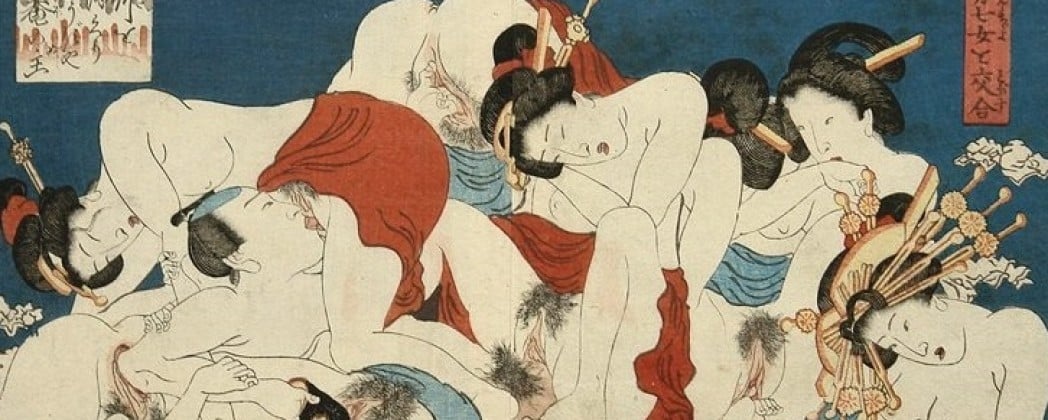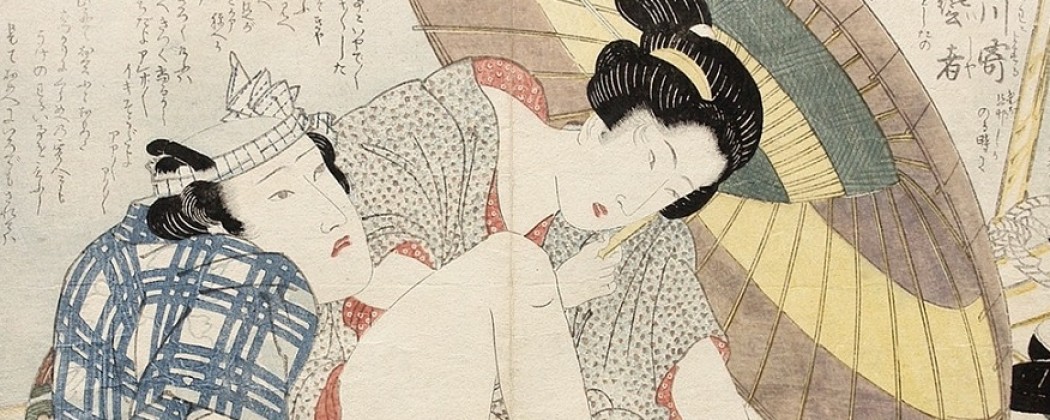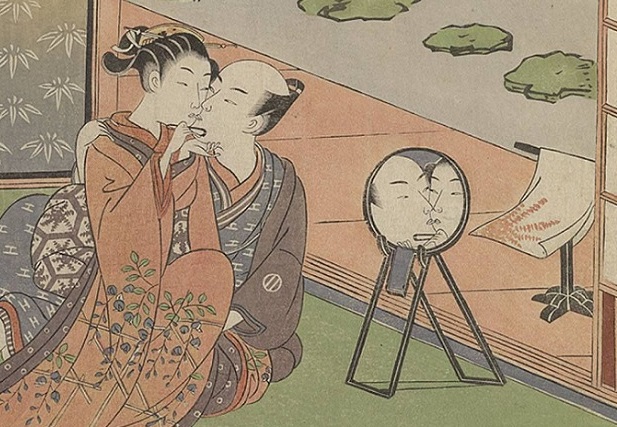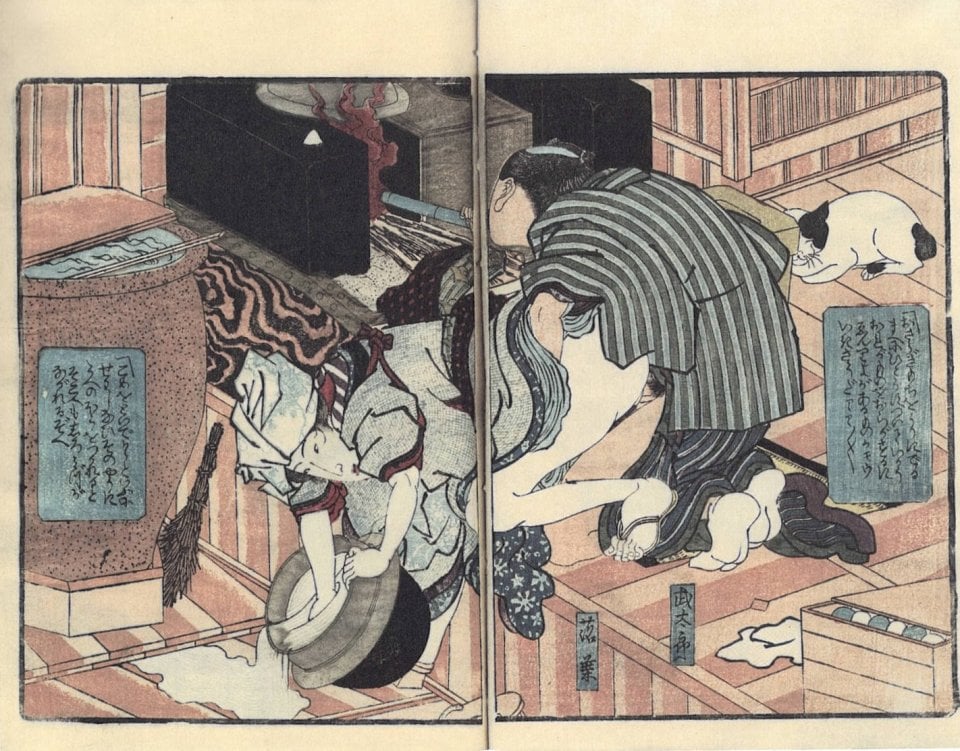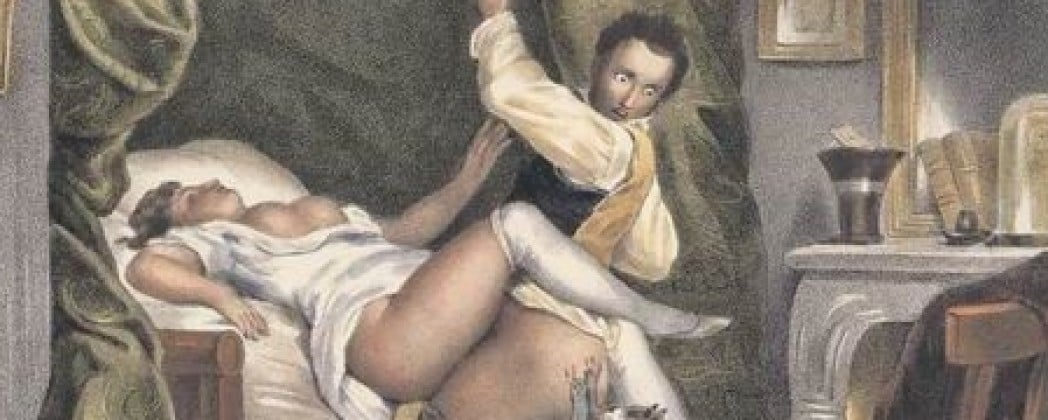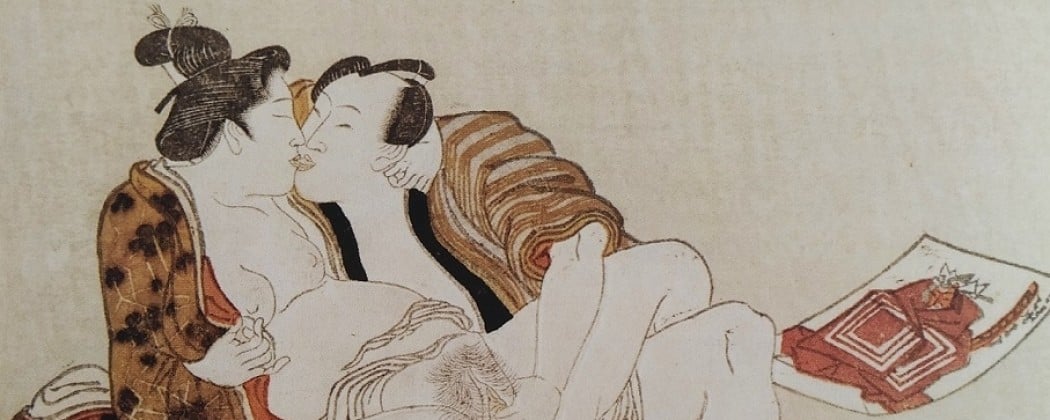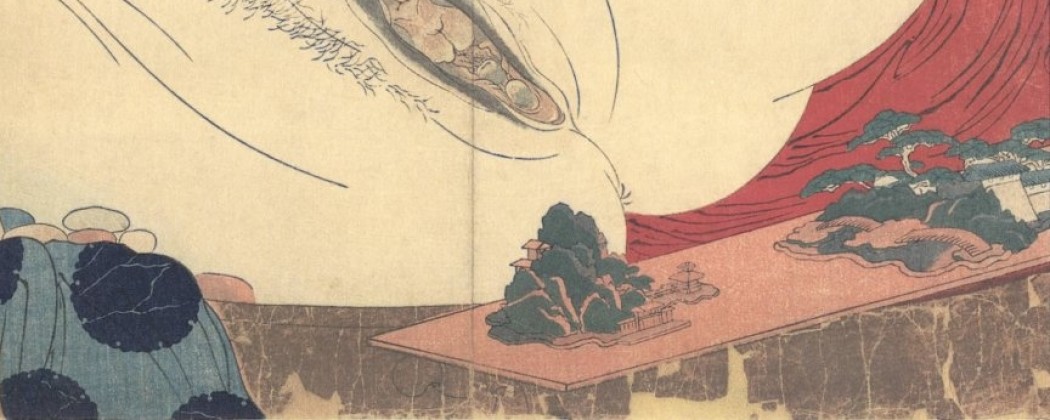
The word ‘Ōmi ‘ as used in the Kuniyoshi series ‘Eight Views of Lake Biwa (Ōmi hakkei)‘, literally means ‘to meet and look’, hence the alternative title ‘Eight Views of Dating‘. But it has also the underlying meaning of a sexual encounter between lovers.
Eight Views of Ōmi
Simultaneously, ‘Eight Views of Ōmi ‘ induces the accepted subject in classical art and literature of eight beautiful views around the southern end of Lake Biwa in Ōmi province.
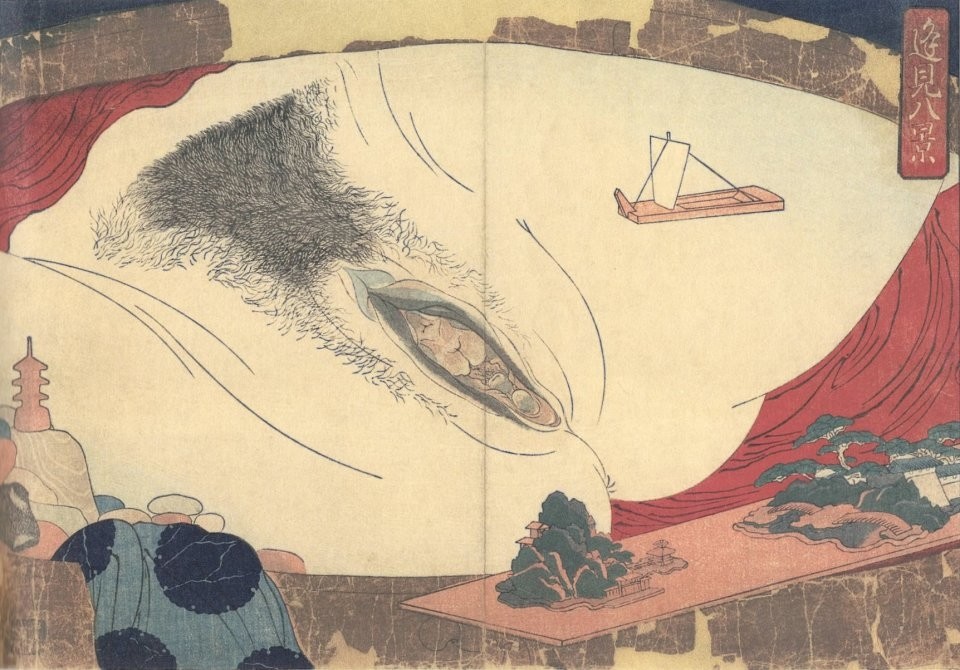
Fig.1. ‘Erotic landscape‘ (c.1833) from the series ‘Eight Views of Lake Biwa (Ōmi hakkei)‘ by Utagawa Kuniyoshi (1797-1861) (Picture by William Pearl – Kuniyoshi Project)
Beauty Spots
The roots are found in the famous ‘Eight Views of Xiaoxiang’ revered in China since ancient times: ‘eight beauty spots around Lake Dongting, near where the Xiao and Xiang rivers flowed together.
The Eight Views
The Eight Views were respectively: ‘Night rain falling by a river’, ‘A flock of geese descending to the shore (Fig.2)’, ‘Evening bell tolling in a distant temple’, ‘A snow-covered mountain at dusk’, the foothills dark and the summit shining brilliant white’, ‘Evening sun shining on a fishing village’, Sailboats returning to a distant harbour’, ‘Full autumn moon shining over the lake’, and ‘Clouds that rise up in the valleys and are blown away by the mountain breezes’.
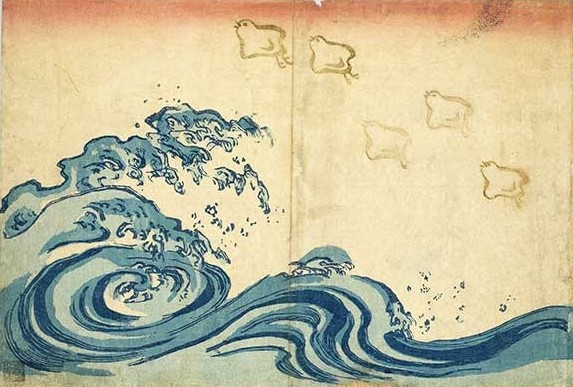
Fig.2. ‘Waves and flocking plovers‘ (c.1833) from the series ‘Eight Views of Lake Biwa (Ōmi hakkei)‘ by Utagawa Kuniyoshi (Picture by William Pearl – Kuniyoshi Project)
Enormous Vagina
Kuniyoshi’s eroticized version of the traditional literary and artistic theme of the ‘Eight Views of Lake Biwa‘ in Ōmi province, as adapted from the Chinese version, displays an enormous vagina meant to illustrate a lake and a Buddhist temple.
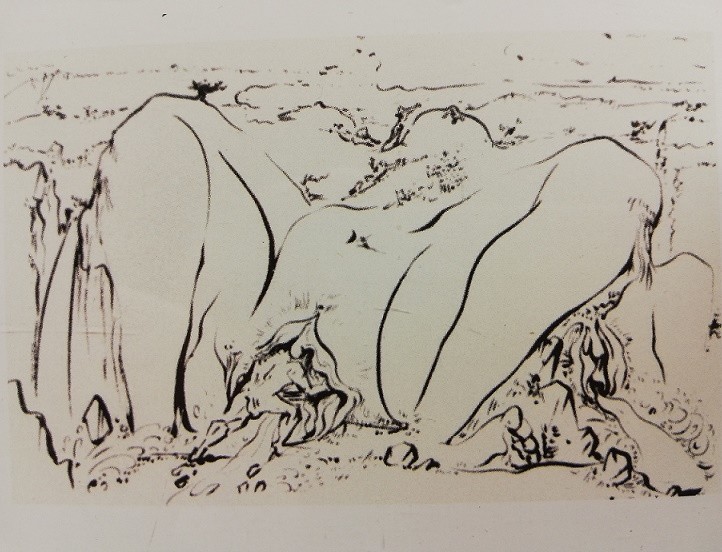
Fig.3. ‘Terre érotique (Erotic landscape)‘ (1955) by André Masson
André Masson
This relates perfectly to the erotic landscape (Fig.3) of the influential French artist André Masson (1896-1987) that he produced in 1955 using the automatic technique inspired by the pictorial tradition of Zen Buddhism and by the Courbet’s painting The Origin of the World (Fig.4). Masson also expressed his admiration for Zen painting in his book ‘Le plaisir de peindre‘ (1950).
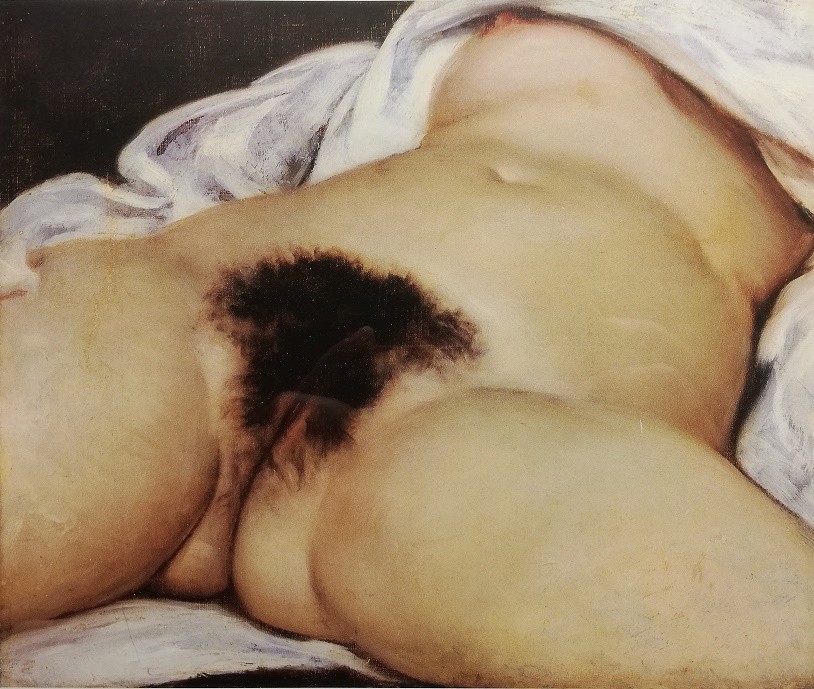
Fig.4. ‘The Origin of the World (L’origine du monde) *‘ (1866) by Gustave Courbet (1819-1877)
Click HERE to check out how shunga inspired the acclaimed Henri de Toulouse-Lautrec…!!
Sources: ‘Shunga, Sex and Pleasure in Japanese Art‘ issued by the British Museum
‘Erotic Japonisme: The Influence of Japanese Sexual Imagery on Western Art‘ by Ricard Bru
*It is almost certain that Courbet must have been familiar with shunga and the genital closeups as depicted in Kunisada‘s series ‘New Tale of the Welling Waters (Sentõ shinwa)‘ and Kuniyoshi’s above design (Fig.1).
Please let us know in the comment box below if you have other striking examples of art that portrays body as a landscape! Or if you know of examples that proof the influence of shunga on Western art…!

